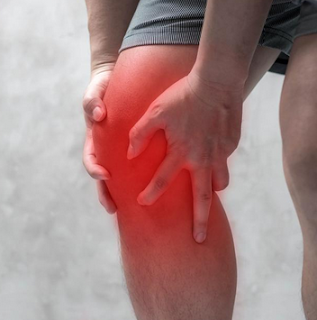Recognize the Causes of Gout to the Abstinence
Gout is a very painful type of rheumatism caused by a buildup of crystals in the joints, due to high levels of uric acid in the body. The joints that are attacked are mainly the toes, knees, heels, wrists, fingers and elbows. Apart from pain, gout can also make the joints swell, become inflamed, hot, and stiff.
Also Read :
Causes of Gout
Acidic calculi occurs when urate crystals accumulate in the joints, causing severe inflammation and pain from attacks of gout. Vein crystals can form when you have high levels of uric acid in your blood. Here are some of the causes of gout:- Gout is caused by the inability of the kidneys to completely remove uric acid from the body through urine. Another small part is because the body produces excess uric acid.
- Gout is actually needed by the body to form cell nuclei. However, only a little is needed by the body. The rest is released through the intestine (30%) and kidney (70%). The high level of uric acid in the blood is due to the synthesis of excess uric acid, while the excretion in the kidneys is small.
- The excess uric acid combines with sodium to form sodium urate crystals in the soft tissue joints. A deposit called topus is formed. Inflammation, commonly called acute gout arthritis, is characterized by pain in the joints such as the knees, fingers, toes and wrists.
Symptoms of gout
Signs and symptoms of gout almost always appear suddenly, and often attack at night, including:- Tingling and rheumatic pain
- Pain, especially at night or in the morning when you wake up
- The joints affected by gout look swollen, reddish, hot and unusually painful at night and morning.
- Alcoholic beverages and foods such as beer, whiskey, wine, tape, wine.
Risk Factors for Gout
You are more likely to develop gout if you have high uric acid levels in the body. Factors that increase uric acid levels in the body include:1. Diet
Maeng consume foods rich in meat and seafood and drink sweet drinks with fruit sugar (fructose) to increase uric acid levels, which increases the risk of gout. Alcohol consumption, especially beer, also increases the risk of gout.2. Overweight
If you are overweight, your body produces more uric acid and your kidneys have a harder time getting rid of gout.3. Medical conditions
Certain diseases and conditions increase the risk of gout. These include untreated high blood pressure and chronic conditions such as diabetes, metabolic syndrome, and heart and kidney disease.4. Certain medicines
The use of thiazide diuretics - commonly used to treat hypertension - and low-dose aspirin can also increase uric acid levels. So is the use of non-rejection drugs prescribed for people who have undergone organ transplants.5. Family history of gout
If your other family members have gout, you are more likely to develop this disease.6. Age and gender
Gout is more common in men, especially because women tend to have lower levels of uric acid. After menopause, women's uric acid levels approach men. Men are also more likely to develop gout beforehand - usually between the ages of 30 and 50 - while women generally develop signs and symptoms after menopause.7. Surgery or just experiencing trauma
Having surgery or just experiencing trauma has been associated with an increased risk of developing a gout attack.Treatment of Gout
Here's what you can do to treat gout:- Perform treatment until uric acid levels return to normal. Normal levels are 2.4 to 6 for women and 3.0 to 7 for men.
- Control food consumed.
- Drink a lot of water. By drinking lots of water, we can help remove purines in the body.
Uric Acid Abstinence
During periods of no symptoms, dietary restrictions can help prevent future gout attacks:- Foods that contain lots of purines need to be avoided such as:
- Side dishes such as innards, liver, kidney, spleen, tripe, intestines, lungs and brain.
- Seafood such as shrimp, clams, squid, crabs.
- Canned food like corned beef and sardines.
- Meat, eggs, broth or gravy is thick.
- Nuts like soybeans (including processed products such as tempeh, tauco, oncom, soy milk), peanuts, green beans, bean sprouts, melinjo, emping.
- Vegetables such as spinach leaves, kale, cassava leaves, asparagus, cauliflower, beans.
- Fruits such as durian, avocado, pineapple, coconut water.
Also Read :
